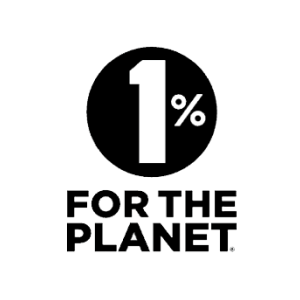What is eczema?
Eczema is a common skin condition, especially among young children. Eczema is not contagious and can be managed, but the symptoms can be a burden for those who suffer.
Symptoms include: dry and itchy skin, dark patches of skin, and sometimes oozing and crusting of blisters. No fun!
The National Eczema Association notes that there are several variations of the condition: atopic dermatitis, contact dermatitis, dyshidrotic eczema, nummular eczema, seborrheic dermatitis and stasis dermatitis, with atopic dermatitis being the most common.
Eczema flares are caused by a number of issues.
Environmental triggers such as temperature, allergens, smoke, fragrances, and certain fabrics, to name a few, create inflammation—which in turn, triggers the outbreak of red or dry skin.
While no cure has been found, there are a number of ways in which somebody can mitigate the symptoms of eczema and live a comfortable life in their own skin:
If you go to the dermatologist with your symptoms, then you are likely to be prescribed a topical corticosteroid from the drug store. Or, they might suggest an over-the-counter topical steroid like hydrocortisone.
These treatment options have been proven to be effective in most patients, but they do come with a cost.
Long term use of these products can lead to skin atrophy, higher risk of infections, rosacea, dermatitis, hypopigmentation, and ulceration with infants and the elderly being the most susceptible.
Notably, infants also have the highest rate of eczema in our population, which is especially concerning.

Because of their potency, misusing or misapplying these medications can have a severe impact on the wellness of an individual. It’s also been seen that the pharmaceutical industry will manufacture and promote unethical combinations of these topical medicines.
At All Good, you and your family’s health and safety are our top priority. Whether it’s by sampling our all natural products, or finding additional remedies that work for you, we want you to be able to ditch the toxic chemicals in your day-to-day skin routine.
If you are looking for ethical, non-toxic treatments to eczema, then there are a number of alternative treatments you could try.
We compiled a list of natural remedies to combat you, or your loved ones’ symptoms of eczema.
How Do You Know If You Have Eczema?
Eczema is very common and can affect anyone during childhood, adolescence, or adulthood.
Although the exact cause of eczema is unknown, there are triggers you need to remain mindful of. Researchers believe that a combination of genes and environmental factors play a role.
Some of the most common triggers associated with eczema include:
- Scratchy materials, like wool
- Stress
- Dry skin
- Food allergies
- Chemicals found in
- detergents or cleaners
- Temperature changes and drops in humidity
- Sweating
- Food allergies
- Animal dander
Eczema looks different for everyone. How it affects you may not be the way it affects someone else. However, regardless of where on your body a rash develops, eczema is almost always itchy.
Symptoms of eczema may also differ depending on your age. In infants, an eczema rash can lead to a crusting, oozing condition on their face and scalp. Rashes may also surface on an infant’s back, legs, arms, and chest. In adults, rashes generally develop on the back of your knees, face, hands, feet, or wrists. If you’re fair-skinned, affected areas may be reddish before turning brown. If your skin is darker, affected areas may become lighter or darker.
The main symptom of eczema is dry, rough, inflamed skin that is itchy and irritated.
Other symptoms include:
- Red or brownish-grey patches
- Areas of thickened, scaly skin
- Crusty areas that may indicate infection
- Small, raised bumps that ooz
What Helps Eczema?
Understanding and identifying potential triggers is the first step in treating your eczema. Since eczema impacts everyone differently, your triggers may not be the same as someone else’s. You may also experience eczema symptoms at certain times of the year or on different parts of your body. The key is figuring out your risk factors.
Although medications are available to treat eczema, including over-the-counter antihistamines and steroid-based creams, this may not be the best option for you or your loved one. When taking immunosuppressants, for example, flare-ups can be more easily prevented. However, possible side effects include an increased risk of infection, high blood pressure, and kidney disease.
One of the best ways to prevent eczema flare-ups is to keep your skin well moisturized. That is because dry skin can trigger flare-ups and cause breaks in the skin, leading to more painful symptoms. It’s particularly important to regularly moisturize during the cold winter months. If you do experience cracking of the skin or just dry skin in general, All Good Goop will be your new best friend!
You should also make lifestyle changes, focusing on stress reduction. From deep breathing exercises to yoga, music therapy to prioritizing sleep, small changes can make a big difference. It’s also important to address your diet. Certain foods increase inflammation in the body, resulting in inflamed skin. In contrast, foods such as fish, leafy greens, vegetables, and turmeric can help reduce the risk of eczema flare-ups.
Here are some habits, lifestyle changes, supplements & alternative treatments to treat eczema symptoms:
(1) Try Colloidal Oatmeal Baths!
Oatmeal has been used as a natural eczema treatment for a long time. That is probably because oats are an effective anti-inflammatory and research backs this.
To gain the benefits of a colloidal oatmeal bath, follow these steps:
- Either purchase a pre-made bath mix or grind oats from the store into a fine powder
- Sprinkle 1 cup of your mix under lukewarm running water while the bath fills.
- Soak for 10-15 minutes
- Gently dry off by patting your skin.
- Apply moisturizer, immediately.
(2) Enjoy Warm Baths and Warm Showers
Eczema and bathing can be walking a fine line. Too hot or too long and you dry out your skin. Too much scrubbing and you can irritate it.
If you don’t want to add anything into your bathing regimine, then simply bathing in warm bath water can be an effective tool to combat the symptoms of eczema.
Switch from soaps to a gentle cleanser and avoid scrubbing with a washcloth or loofah. Limit your session to 10-15 minutes and apply a moisturizer or lotion within 3 minutes of drying off.
(3) Wet Wrap Therapy
Wet wraps significantly reduce the symptoms of severe eczema and provide much needed relief for those suffering.
They are most effective after bathing, moisturizing, and applying your treatment to the affected area. A step by step guide to this treatment can be found below:
Some lifestyle changes…
(4) Reduce Exposure to Allergens and Irritants
For those living with sensitive skin, the household can be a minefield of irritants that cause flare ups and discomfort.
Seemingly benign things like the type of fabric your clothes are made of can cause symptoms in the affected area (stay away from wool and polyester)!
Typical household cleaners and laundry detergent often have many chemicals and fragrances that disrupt the comfort of somebody with eczema. Consider shifting to fragrance free and nontoxic products for your everyday cleaning products and personal hygiene routine (our unscented deodorant might help).
Search this article from the National Eczema Association for a comprehensive list of irritants and triggers.
(5) Check Your Diet!
While eliminating foods that cause flare ups will not get rid of the eczema, it can certainly help mitigate potential flare ups.
A food allergy causes a reaction in the immune system, which then affects the skin. Even if somebody is not allergic to a specific food, things like dairy, foods high in carbs and sugar, and most processed foods tend to exacerbate inflammation for most people.
Switching to a diet of fruits, vegetables, and some meats could make some positive change and help reduce symptoms.
It is important to discuss this with a trusted healthcare professional and to make sure that a sustainable diet is followed.
(6) Reduce Stress—Self-Care!
Emotional stress is a huge trigger for eczema flare ups. The initial stressor causes the first symptoms to show, which causes more stress and more flare ups. When we are stressed our bodies produce cortisol and when produced in high quantities our immune systems can become suppressed, creating an inflammatory response in the skin. Consistent and healthy sleep, proper diet and exercise, and regular meditation are all proven ways to reduce stress.
What your “practice” becomes all depends on what works for you! Walking the dog, heading out for a surf, or drinking some chamomile tea, whatever puts your mind at ease and resolves some stress can, in turn, reduce your flare ups with eczema.
An excellent resource for how to develop a mind/body connection in order to deal with the symptoms of eczema can be found here.
Some additional natural remedies and alternative treatments…
(7) Coconut Oil
What is coconut oil not used for! We love our coconut oil and it’s many uses. Coconut Oil is the holy grail of plant oils for dealing with eczema symptoms.
The oil acts as a moisturizer and its compounds have been proven to improve skin barrier function, reduce inflammation, and prevent further discomfort with its antibacterial effects. This is because coconut oil contains lauric acid, a healthy lipid that develops monolaurin in our bodies. Monolaurin helps fight bacteria, fungi, yeast, viruses and other pathogens according to the National Eczema Association.
Pretty cool, huh?
Test out applying coconut oil to any trouble areas in the mornings or after a shower for a natural eczema treatment..
(8) All Good Goop
Well, we’d be remiss if we didn’t make mention of our beloved super balm, our all natural All Good Goop!
Combining the benefits of essential oils with medicinal plants, our all natural remedy is non-toxic and ethically made.
Designed to soothe, heal, and repair skin, our All Good Goop merges the benefits of essential oils (like olive oil and lavender oil) and sustainably sourced beeswax with the all natural healing factors of plants like calendula and comfrey. All Good Goop serves as an anti inflammatory emollient that is great for post bathing and on the go relief from eczema symptoms.
A few supplements to consider…
(9) Vitamin D
Throughout multiple clinical trials, Vitamin D has consistently been proven to reduce the systematic expression of eczema. Research suggests that it helps decrease the skin colonization of the bacteria, S. aureus as well as protect the skin barrier.
If sun exposure is limited or a deficiency is found, then supplementing with a daily dose of 2,000 IU’s may be in order!
(10) Vitamin B12
Vitamin B12 has been clinically shown to improve the symptoms of atopic eczema. However, be careful when purchasing an over the counter B12 product! Often, the B12 creams are diluted with unnecessary chemicals. Make sure that any topical B12 you purchase follows these ingredients, here.
(11) Vitamin C
Vitamin C helps boost the immune system and acts as a natural antihistamine. When the immune system is suppressed or when somebody is exposed to allergens, they are more prone to eczema flare ups. By supplementing the body with Vitamin C, you are protecting against the root cause of eczema symptoms!
(12) EFA – Fatty Acids
There is a strong correlation between EFA deficiency and fatty acids such as Omega 6, Omega 3, and Linoleic Acid are crucial to normal skin barrier function.
If you do not have a diet rich in this EFA’s, then supplements are an excellent way to boost your defense against the symptoms of eczema, as several studies have shown.
Some final alternative treatments…
(13) Witch Hazel
In a 2009 study, Witch Hazel was pitted against a steroid cream and a placebo as an eczema treatment. While all three did reduce the symptoms of eczema, steroid cream vastly outperformed both the placebo and Witch Hazel.
While not a complete indictment against the plant, there seems to be more effective natural remedies to use.
If we can keep some toxic chemicals out of our system and prevent long term damage and health concerns, shouldn’t we?
(14) Evening Primrose Oil
Anecdotal tales suggest that when placed in a humidifier, Evening Primrose Oil proved to be an effective natural remedy against the symptoms of eczema, however, the scientific data remains slim.
(15) Calendula Oil
As we have noted in the past, the calendula plant has many amazing uses.
Research has shown that this plant is an anti inflammatory, and, now we know, inflammation is a major cause of eczema flare ups.
However, the results were inconclusive as to whether this incredible plant could be used as an effective eczema treatment on its own. But, don’t worry, we added it as just one of many all-natural ingredients in our flagship product, All Good Goop.
(16) Probiotics
Probiotics were found as an excellent method in preventing eczema in infants.
A 2012 study found that breast feeding mothers who supplemented with probiotics two (2) months before and after delivery, had children with a significantly lower rate of developing eczema.
However, studies have not concluded that probiotics are an effective method for suppressing flare-ups in those dealing with eczema.
Something to keep in mind as more of a preventative measure for your offspring!
(17) Humidifiers
Dry air can extract moisture from the skin, leaving it dry and itchy.
If the cost of a humidifier is too steep, or if you are somebody who travels a lot, leaving a bowl of water out on the counter is an effective alternative.
Scientific research has not been conducted on the effectiveness of this treatment, so make sure that this natural treatment is done in conjunction with other remedies as well!

Natural Eczema Treatments
Over 10% of Americans live with some form of eczema, affecting people of all skin colors. This represents around 31.6 million people in the United States. If you’re one of these individuals, you know that there is no cure for eczema.
Although eczema flare-ups can be incredibly itchy and uncomfortable, there are steps you can take before a rash presents itself. Taking proactive measures before and during flare-ups can help you reduce the severity of symptoms and allow you to maintain a higher quality of life.
Be sure to check out this guide — All Good’s Comprehensive Guide to Non-Toxic and Natural Remedies for Eczema
Everyone’s Eczema is Different
No two people have the same skin and reactions to different treatments will surely vary from person to person.
What works for you or your loved one, may not work for someone else!
We hope that one of these treatment options, or some combination of them can be effective for you or your loved ones seeking some relief from the discomfort eczema can cause.
It may take some testing to see what works best, and of course, don’t forget to consult with your friendly neighborhood doctor or dermatologist, and you embark on finding the chemical free, toxin free, means of alleviating the bouts with eczema.






